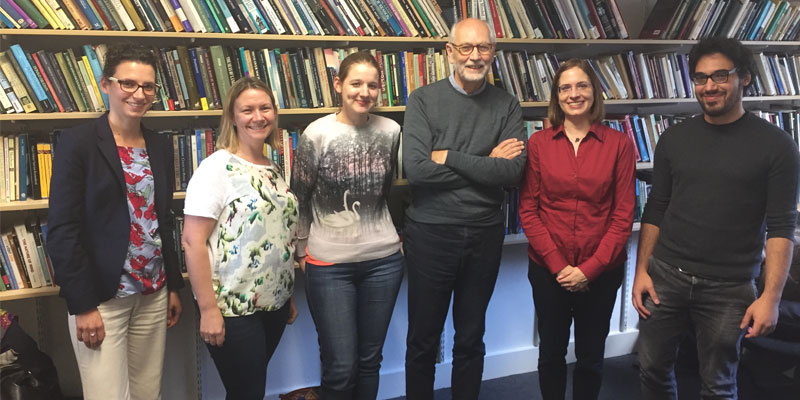
Project team
Our cross-disciplinary project team consists of members from the University of York, the University of Kent and Birkbeck, University of London.
Principal Investigator: Professor Greg Currie
University of York
Greg Currie is a Fellow of the British Academy and works on many aspects of the arts: literature, film and painting, the narrative arts and their role in learning, the place of the aesthetic in archaeological explanation, the nature of adaptation, irony in pictures and in language.
This project reflects Professor Currie's decades of work on the nature of fiction, both literary and cinematic, much of it devoted to establishing closer ties between the philosophy of fiction and its empirical study.
Co-Investigator: Professor Heather Jane Ferguson
University of Kent
Professor Ferguson’s research expertise broadly lies in the cognitive basis of social communication and language comprehension. Her work to date has bridged gaps between the fields of neuroscience, linguistics and social psychology, and she has developed innovative experimental paradigms and statistical techniques to study these issues.
She is a world-leading expert in eye-tracking and EEG research, and manages five highly productive eye-tracking labs and five EEG/ERP labs in the School of Psychology at the University of Kent.
Co-Investigator: Dr Stacie Friend
Birkbeck, University of London
Dr Friend is a world-leading expert in the philosophy of fiction, with a background in literature. Her work to date has focused on the nature of fiction (vs non-fiction), how we learn from fiction, the relationships between fiction and
reality, and our emotional and imaginative engagement with fictional literature and film. She is a pioneer in the incorporation of empirical research into philosophical debates about fiction, and has recently collaborated with psychologists studying fiction and emotion.
"Literature, Knowledge and Insight: A Philosophical and Psychological Inquiry"
"The aesthetic and epistemological implications of reader contribution to learning from fiction"
Across the vast literature on the question of learning from fiction, little has been written on whether and how beliefs derived from fiction might meet standards of theoretical rationality.
Two considerations are important here. The first relates to characteristics of fictions as a class, and to whether or not fictions are the sort of things that can ground rational belief. The second focuses on processes of reader belief formation, and on whether or not the nature of our cognitive engagement with fiction renders us vulnerable to the acquisition of irrational empirical beliefs and attitudes. I am primarily concerned with this latter question.
Drawing on experimental work in psychology and the cognitive sciences, my research investigates the extent to which facts about the reader determine the nature, scope, and epistemic status of beliefs and attitudes acquired from fiction.


